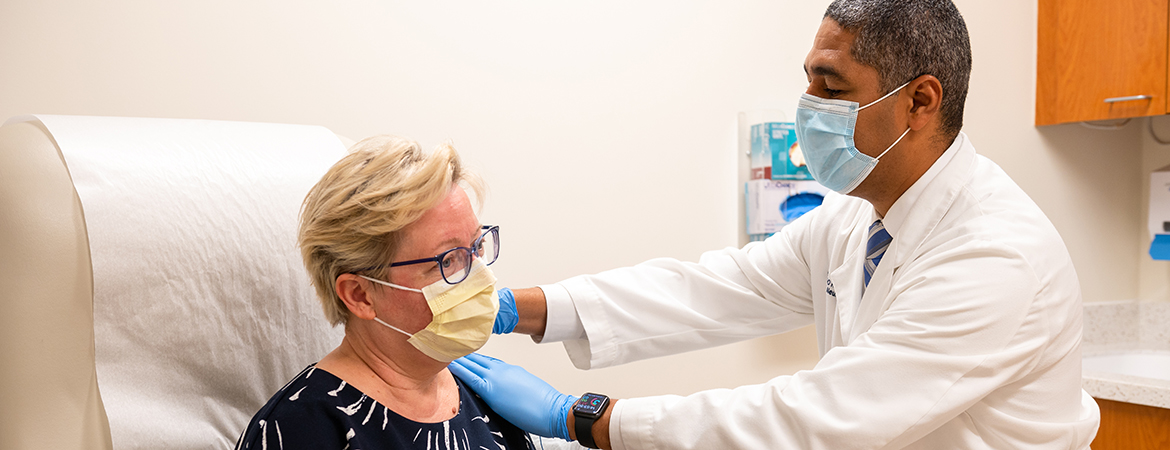Areas of Care

At the Parkinson’s Disease and Movement Disorders Center, our patients receive personalized care from experts with many years of experience in treating movement disorders. We offer a variety of specialized testing and services and the latest and most revolutionary treatments in an effort to improve and preserve our patients' quality of life.
Conditions We Treat
Parkinson’s Disease
- Idiopathic Parkinson’s Disease
- Multiple System Atrophy
- Diffuse Lewy Bodies Disease
- Progressive Supranuclear Palsy
- Corticobasal Degeneration Syndrome
- Fronto-Temporal Dementia
Functional Movement Disorders
Tremors
- Essential Tremor
- Fragile X Tremor Ataxia Syndrome
- Cerebellar Tremors
- Dystonic Tremors
- Rubral/Holmes
Dystonia
- Blepharospasms
- Hemifacial Spams (HFS)
- Cervical Dystonia (CD)
- Limb Dystonia
- Task-specific Dystonia
- Writer’s Cramp
- Musician’s Cramp
- DYT/Genetic Dystonia
- Tourette’s Syndrome (TS)
- Spinocerebellar Ataxia (SCA)
- Myoclonus
Services
Deep Brain Stimulation
One of the most promising treatments for PD is deep brain stimulation (DBS). DBS can control many of the symptoms of PD, reducing tremors and improving mobility. DBS has been FDA approved for essential tremor, Parkinson’s disease, and dystonia.
Movement Rehabilitation Clinic
- Physical Therapy
- Occupational Therapy
- Speech Therapy
- LSVT BIG+LOUD® Program
- SPEAK OUT® Program
Botulinum Toxin
Botulinum toxin (BoNT) is one of the most potent neurotoxins known to men, and for decades it has been used in medicine. BoNT is commonly used as a potent muscle relaxant, but it can also help decrease saliva and sweat production. Botulinum toxin type A (BoNT-A) has been approved for the treatment of chronic migraines since 2010.
Common neurological indications for BoNT are Dystonia and spasticity. Spasticity associated with multiple sclerosis, stroke, or spinal cord injury is a common indication for BoNT. Patients will have access to botulinum toxin types A and B (BOTOX®, Disport, Xeomin, Myobloc).
Supportive Care and Planning Clinic
The creation of the Supportive Care and Planning clinic allows access to important and profound discussions about resources, supportive care, assistance, and planning for a healthy life. The clinic will integrate clinical expertise, triage tools designed to identify cognitive and emotional dysfunction with guidance and social services.
This service will be available annually upon diagnosis and can also be helpful in life-changing situations or special occasions.
Call To Make An Appointment
